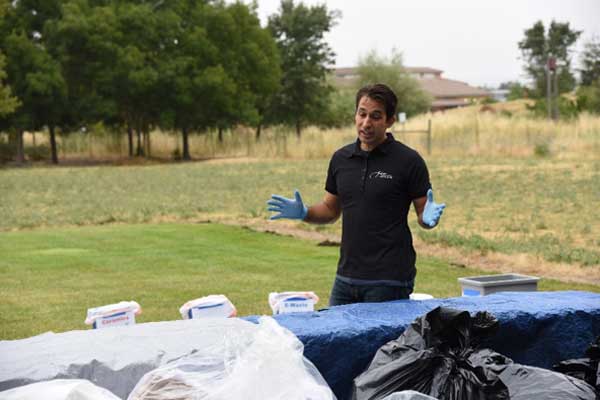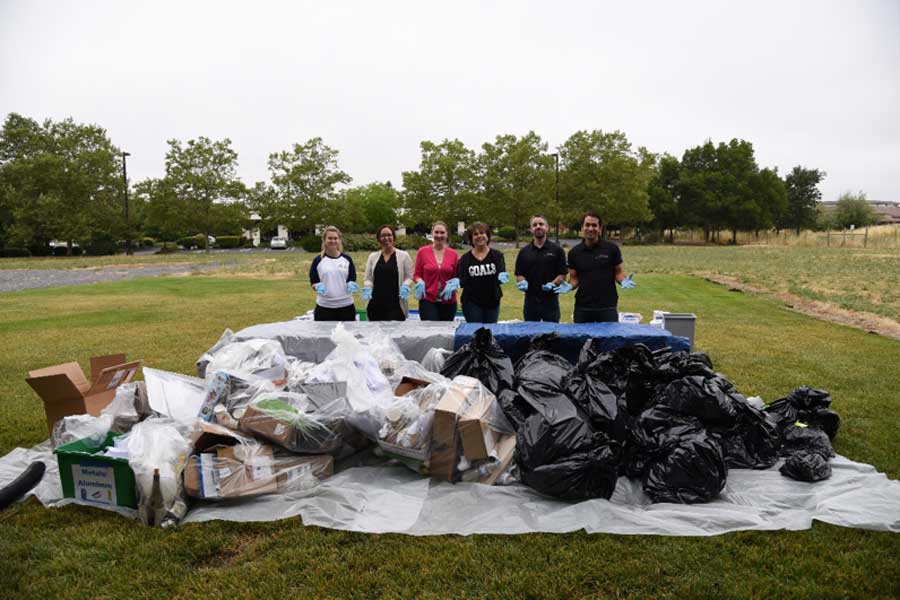How We're Striving to Become a Zero Waste Company
By Zoe Giglio, Sustainability Intern
Here at Kendall-Jackson, we’re all about sustainability and leaving as little impact on the environment as possible. In fact, one of our sustainability goals is to become a certified Zero Waste company. What exactly does it mean to be a Zero Waste company? It means a company has documented processes in place to reuse or recycle over 90% of its solid waste stream, thereby keeping it out of a landfill. This is important for many reasons, including the fact that landfills create groundwater pollution, adverse human health impacts due to poor air quality, and also because they generate a significant amount of methane, which contributes to global warming. To achieve this goal, we start by measuring our waste streams, so we can better understand how to manage them. We already have Zero Waste initiatives in place at our wineries (where we have historically generated most our waste), but to become fully certified, we also need to extend our efforts to our administrative office and hospitality locations. With this in mind, last month, our sustainability team completed a Waste Audit at our administrative offices to see how our employees were handling their waste.
A detailed waste audit categorizes waste in up to twenty different waste streams to allow for the accurate tracking of current diversion rates and to put plans in place to divert as much as possible. At our administrative offices, the team discovered the average employee produces an average of one pound of waste every day, whether that’s generated from food scraps or a bag of popcorn being thrown in the trash.
Here's a video of the waste audit that was conducted at our offices:

Aaron Stainthorp, sustainability team member, prepares for the audit.

Admin members prepare to get their hands dirty.
We determined that we are currently sitting at a 54.9% diversion rate, which is the percentage of our waste that is repurposed rather than sent to sit in a landfill. The other half of this waste is what stands between Kendall-Jackson and becoming Zero Waste certified. Daily decisions that we, as employees, make affect these goals and the environment. It’s not just our daily decisions that make a change towards sustainability within the company. If we can work together to make sure that we are putting our waste where it belongs, using reusable containers, and helping others with these steps, we can move towards our goal. The sustainability team is currently working on a waste report with recommendations on how to achieve zero waste certification. Some of these tasks involve switching waste service companies, reusing wine shipping palettes, donating extra office supplies, completing waste sorting analyses annually, growing food at our locations, making environment friendly products available to customers and eliminating the health risks to communities that operate around or within our business. Employees have more responsibilities than just reducing, reusing, and recycling. Achieving this goal is much bigger than any of us individually, it takes each piece of the company to work together to reach this goal.
Another very important part of becoming Zero Waste certified is compost. Compost is a vital soil amendment that is derived from organic materials such as yard trimmings and wood waste, as well as food scraps that would otherwise be thrown in the trash. By implementing a compost program at our administrative offices, our current diversion rate of 54.9% would skyrocket to 85.6%. This would mean that employees will put food scraps in waste bins, that will go to compost bins rather than landfill, which would help our diversion rate and create nutrient rich matter to add back to the earth.
Now that we are aware, we can work together to make a change that will affect the long-term footprint this company leaves on the communities that it operates in as well as its footprint on the earth.
Questions? Contact sustainability@jfwmail.com or call 707.535.8516.



